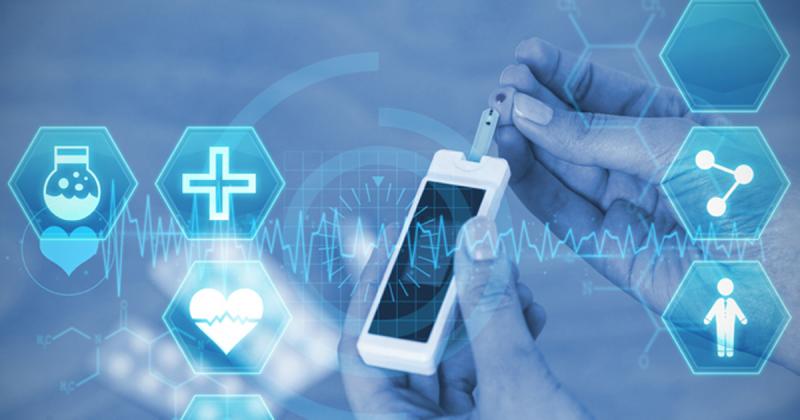Digital Diabetes Management Market: Revolutionizing Diabetes Care through Technological Innovations
Diabetes, a chronic metabolic disorder characterized by high blood glucose levels, affects millions of people worldwide. Managing diabetes effectively is essential to prevent complications and maintain a good quality of life. The emergence of digital diabetes management has transformed the landscape of diabetes care, empowering patients and healthcare providers with innovative technologies and tools to better manage the condition. The digital diabetes management market encompasses a wide range of solutions, from mobile apps and wearable devices to artificial intelligence (AI) and telemedicine, all aimed at improving diabetes management and patient outcomes.
The Growing Diabetes Epidemic and Need for Better Management
Diabetes has become a global health concern, with the number of people affected by the condition steadily increasing. Factors such as sedentary lifestyles, unhealthy diets, and an aging population contribute to the rising prevalence of diabetes. Effective management of diabetes is crucial to prevent complications such as cardiovascular diseases, kidney failure, and retinopathy, which can significantly impact a patient's health and well-being.
Digital diabetes management offers a promising solution to address the challenges of diabetes care. By leveraging technology and data-driven approaches, digital tools provide patients with real-time insights, personalized recommendations, and continuous support to manage their blood glucose levels effectively.
Technological Advancements in Digital Diabetes Management
The digital diabetes management market is characterized by rapid advancements in technology, offering a diverse range of solutions tailored to meet the needs of patients and healthcare providers.
1. Mobile Apps for Diabetes Monitoring and Tracking
Mobile apps play a central role in digital diabetes management, allowing patients to monitor their blood glucose levels, track food intake, record physical activity, and manage medications. These apps often integrate with blood glucose meters and wearable devices, enabling real-time data syncing and analysis. Furthermore, many apps utilize data analytics and machine learning algorithms to provide personalized recommendations and insights based on a patient's individual health data.
2. Continuous Glucose Monitoring (CGM) Systems
CGM systems have revolutionized diabetes management by providing patients with continuous, real-time glucose readings. These wearable devices continuously monitor glucose levels through a small sensor inserted under the skin. CGM systems offer significant advantages over traditional fingerstick testing, providing patients with a more comprehensive view of their glucose patterns and helping them make informed decisions about diet, exercise, and insulin dosing.
3. Insulin Pumps and Automated Insulin Delivery
Insulin pumps are wearable devices that deliver insulin continuously, eliminating the need for multiple daily injections. The integration of insulin pumps with CGM technology has given rise to automated insulin delivery systems, also known as artificial pancreas systems. These closed-loop systems automatically adjust insulin delivery based on CGM readings, optimizing blood glucose control and reducing the risk of hypo- and hyperglycemia.
4. Telemedicine and Virtual Diabetes Care
Telemedicine has become an essential component of digital diabetes management, allowing patients to connect with healthcare providers remotely. Telemedicine platforms enable regular check-ins, diabetes education sessions, and medication adjustments, all without the need for in-person visits. This approach improves patient access to diabetes care, especially in underserved areas or during times when physical visits may be challenging.
5. Artificial Intelligence and Predictive Analytics
Artificial intelligence plays a transformative role in diabetes management by analyzing large datasets and providing predictive analytics. AI algorithms can predict hypoglycemic and hyperglycemic events, helping patients and healthcare providers take proactive measures to prevent fluctuations in blood glucose levels. Additionally, AI-powered virtual health coaches can offer personalized support and behavior change interventions, promoting healthier lifestyle choices for patients with diabetes.
Benefits of Digital Diabetes Management
The adoption of digital diabetes management solutions offers several benefits for both patients and healthcare providers:
Enhanced Self-Management: Patients gain greater control over their diabetes management through real-time monitoring, personalized insights, and reminders for medication and lifestyle adjustments.
Improved Clinical Outcomes: Digital diabetes management can lead to better glycemic control, reducing the risk of diabetes-related complications and hospitalizations.
Increased Patient Engagement: Interactive mobile apps, wearable devices, and telemedicine platforms encourage patients to actively participate in their care, leading to higher adherence to treatment plans and healthier behaviors.
Remote Monitoring and Support: Healthcare providers can remotely monitor patients' glucose levels and treatment adherence, allowing for timely interventions and reducing the need for frequent clinic visits.
Data-Driven Decision-Making: Digital diabetes management generates vast amounts of patient data, empowering healthcare providers with insights to tailor treatment plans based on individual patient needs.
Challenges and Future Prospects
Despite the promising benefits, the digital diabetes management market faces several challenges. Ensuring data privacy and security is of utmost importance, as patient health data must be protected from breaches and unauthorized access. Additionally, the accessibility and affordability of digital solutions need to be addressed to ensure that all patients, including those in underserved communities, can benefit from these technologies.
Looking ahead, the future of digital diabetes management is filled with potential. The integration of AI and predictive analytics is expected to further optimize diabetes management, offering proactive interventions and personalized treatment plans. Collaborations between technology companies, healthcare providers, and diabetes advocacy organizations will drive innovation and promote the widespread adoption of digital diabetes management solutions.
The digital diabetes management market is a transformative force in the field of diabetes care, harnessing the power of technology to improve patient outcomes and revolutionize the way diabetes is managed. With continuous advancements in mobile apps, wearable devices, AI-driven solutions, and telemedicine, patients and healthcare providers have an ever-expanding toolkit to tackle the challenges of diabetes effectively. As digital diabetes management continues to evolve, it holds the promise of empowering patients to take charge of their health, reducing the burden of diabetes-related complications, and paving the way for a healthier future for those living with diabetes.
